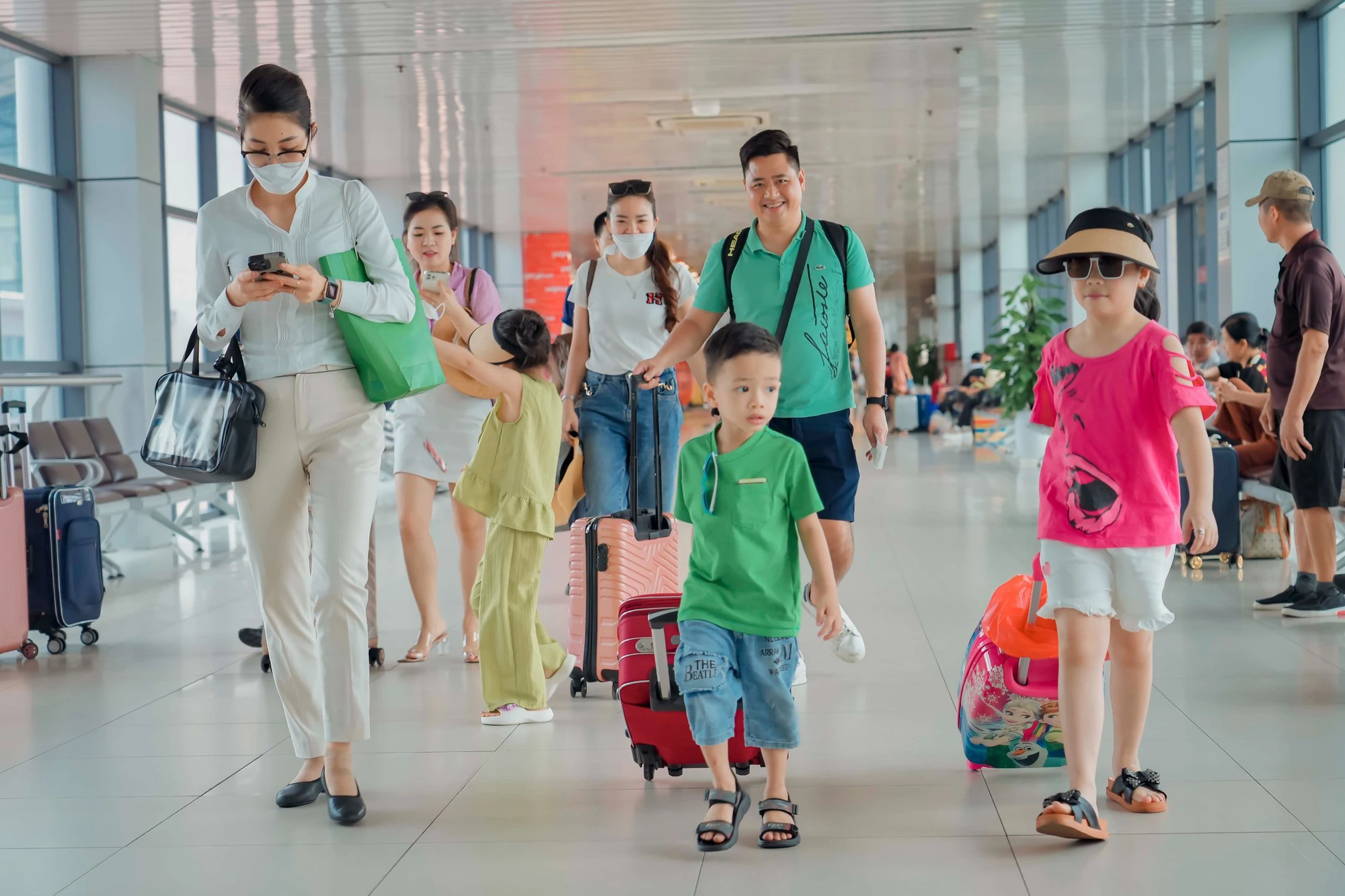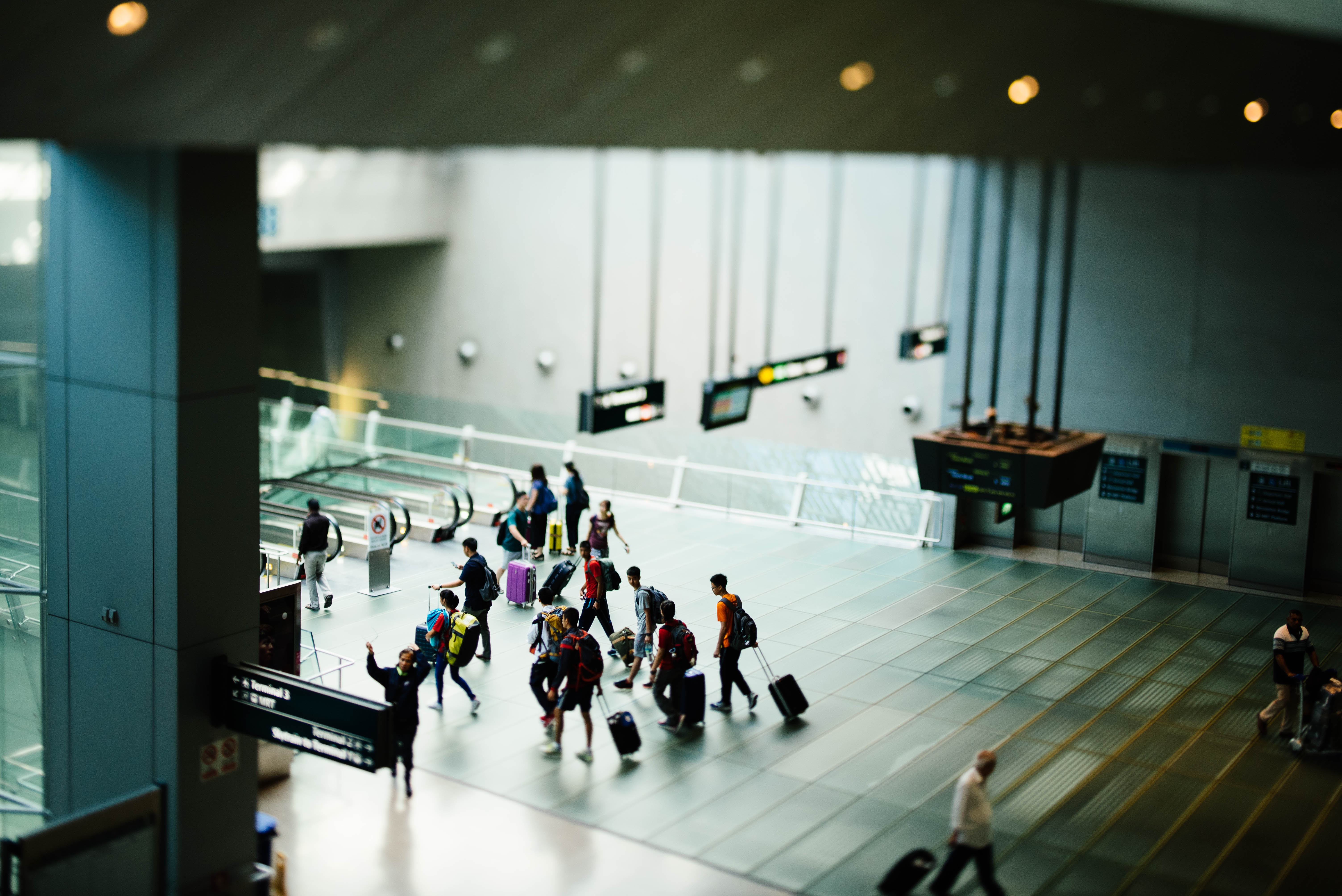
(Photo: Phan Cong)
At the departure airport – A good start
Passengers will be picked up at the hotel and taken to the airport in new, high-quality vehicles
Passengers will be greeted at the check-in area taken to the departure gate:
-Quick check-in at the private counter – Concierge Desk
-Be instructed and supported in security screening and exit procedures
-Checked baggage allowance will be served as a priority, with passengers receiving it back quickly upon arrival.
At the arrival airport – Attentive reception when the flight lands
The staff will identify and pick up passengers at the aircraft gate (if telescopic bridge) or at the terminal entrance (when entering the terminal by airport bus)
-Guidance, immigration support (international flights)
-Assistance with baggage collection at the conveyor belt
-Assist in transporting luggage to the car or sending guests to the arrival gate.
VIP Lounge Service
Looking forward to enjoying luxurious, premium services at the airport while waiting for boarding? Need a private VIP lounge to receive guests at the airport? Need access to a business class lounge when only purchasing economy class tickets? VIP LOUNGE service will satisfy all your requirements.
Enjoy every precious moment in privacy and tranquility where you can take complete control of your own time and get away from the hustle and bustle of the airport before every journey.
Instead of waiting tiredly, passengers can enjoy the service in the business class lounges, where there is a variety of dishes for you to choose from, while resting in comfy seats, in a quiet space without hustle, even personal hygiene, Take a shower before you fly or during transit between two flights.
Airport Guide Service
And for this service support, you can contact the website: https://vietnam-immi.org to book and guiding passengers at the Airport for individuals and groups.
Professionally trained staff will escort you before departure and/or after
landing and make sure everything related to your trip goes smoothly.
Baggage Porters Service
Whether you are traveling with one bag or ten, let V.A.C’s porters service take the burden of carrying your suitcases off you. By far the easiest way of getting your luggage either to check-in or from baggage reclaim to your vehicle, this bespoke service can be booked online through V.A.C Airport Concierge Service.
Who is recommended to use these services:
o Businessmen
o Elderly and Infants
o Pregnant Women
o Transit but closing time is too tight.
o In Group of travel.
Benefits of using Airport Support Service, passengers will get:
o Enjoy high-class services, luxurious facilities at VIP lounge
o Shorten check-in time at the airport to minutes instead of hours
o Assistance with baggage transportation and management during check-in at the airport
o Completely master the experience time, explore the airport
o Take a relaxing break instead of crowds at the airport
Source: avia.vn

Photo: Unsplash
Vietnam is a beautiful country with attractive places to visit. Also, it has all the seasons to enjoy, events which is why many tourists come here annually. It is one of the Southeast Asian countries that is home to natural beauty.
Many travelers come here every year to have a fun and relaxing trip.
However, the fun part is the trip but the full of hassle part is when one land at the airports of Vietnam. Not to mention, the travelers have to stand in long lines for hours to pass through the security and immigration process.
Now, the Vietnam Airport Meet and Greet service is available. This service allows the passenger to have a hassle-free visit to the airport.
The Vietnam Airport Meet and Greet is quick and puts the customers at ease from the time you reach the airport until you reach your next destination, you get assistance from staff.
The staff helps the customers to pass through all the necessary counters without waiting, which makes the process faster and easier. One can easily book the service online, via website: https://vietnam-immi.org/ ,v.v…
The journey at the airport is important. One has to complete all the necessary procedures to either enter the country or exit it. Subsequently, it is essential that one does not miss out on any of the processes as it can cause a problem in the future. The Vietnam Airport Meet and Greet staff members make sure to complete all the procedures within time and leave no grey area. There are many services one can avail of. The following are them!
1. Arrival services
Arriving at the Vietnam airports can be fatigue because of the already long flight you were on. Furthermore, the frustration adds up when one has to stand in line to complete the essential processes. With the Vietnam Airport Meet and Greet arrival services you get guidance from the time you land at the airport till the time you exit it or board your next flight. Also, the passengers become a top priority for the staff and they let them pass through the immigration counters towards the baggage claim. The baggage area is also taken care of by the staff. With a porter with you who would worry about the luggage.
2. Departure services
When you want to board the plane, it becomes confusing to complete the process and reach the waiting lounge. Do not worry, Vietnam Airport Meet and Greet departure services are here for you. With the services with you, you can easily bypass the security and immigration counters. Also, the staff escorts the passengers to the departure hall where they can sit back, relax and wait for their next flight. Furthermore, the completion of the procedures is on time and the passenger can stay calm while they wait for their boarding to start.
3. Car services
Landing at the airport and not knowing the surroundings is already a frustration for travelers. Furthermore, if you have to book the car on your own it becomes more of a challenge for the passengers. However, Vietnam Airport Meet and Greet car services are here for valuable clients. You don’t need to put yourself through the hassle of finding a taxi or a driver.
4. Baggage porter service
The baggage porter service allows the customers to stay tension free of their luggage. The porters take care of everything. Whether at baggage claim or check-in counter everything is now under the right control of the Vietnam Airport Meet and Greet baggage porter service. Whether you carry a bag or ten bags you don’t need to worry about it.
And for this service support, you can contact the website: https://vietnam-immi.org to book and use the service quickly and safely.
Source: vietnamimmigration.org